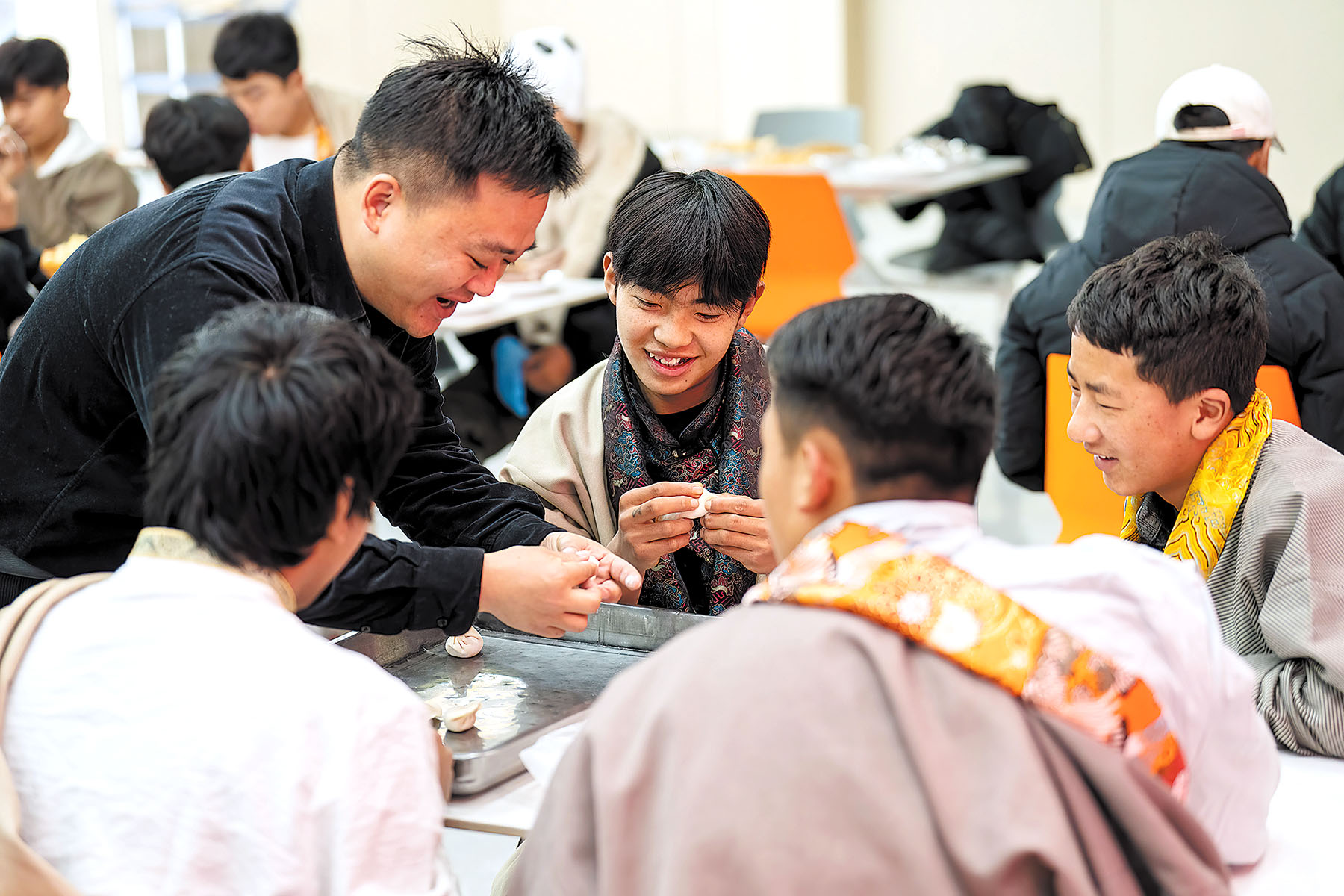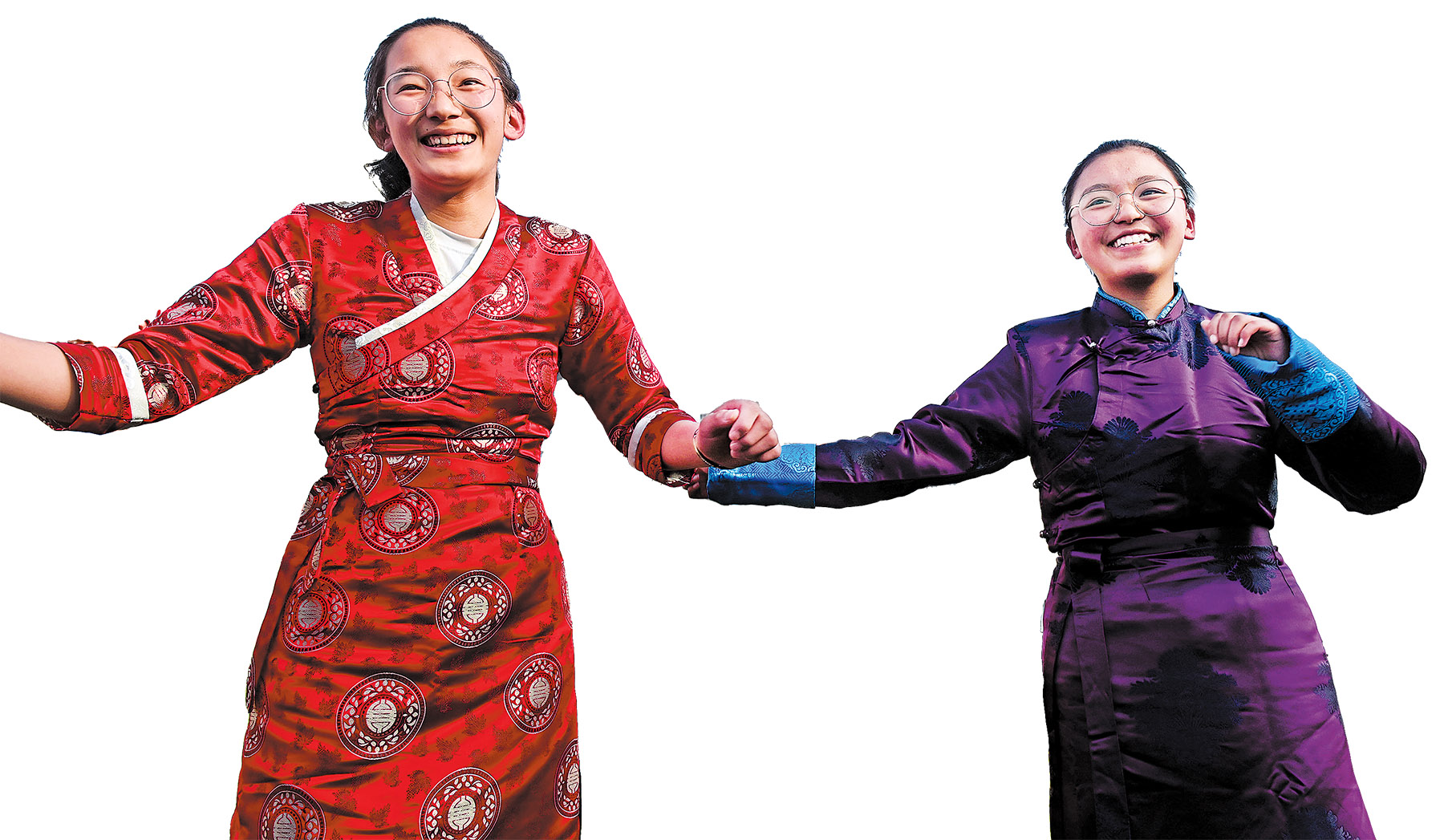Educated in Lhasa, Shanghai, Beijing and New York, outstanding Tibetan woman takes her Chinese heritage around the globe

Despite excelling in education and achieving many of her goals in life, Tsering Chugye remains deeply connected to her cultural roots.
The 30-year-old from the Tibetan ethnic group has come a long way from her humble beginnings in western China's Xizang autonomous region.
As a child, she shone early at school in the regional capital of Lhasa, topping her class in almost every subject.
Due to her excellent performance, she was accepted into a prestigious high school in Shanghai, and in 2010, she faced the daunting trek of thousands of kilometers across the country to study.
READ MORE: Xi: Build a united, prosperous new Xizang
This was Tsering Chugye's first big challenge in life, she said. Living in a sprawling modern city like Shanghai was nothing like her home out west. The people, the food and the culture were all different, and she began feeling homesick.
Instead of being top of the class like she was back in Lhasa, she suddenly found herself at the bottom, having to work her way back up.
"I felt especially lonely on the weekends," she said. "But then I discovered some Tibetan friends, and the school provided support to help us adjust."

As overwhelming as this experience was, it gave Tsering Chugye a newfound appreciation for her unique culture, and she became determined to savor and preserve it at every opportunity. She embraced her nomadic and spiritual roots, and remained connected to the Himalayan landscape of her childhood.
"In my high school years in Shanghai, I came to realize that the world is like a kaleidoscope of cultural diversity," she said. "I took every opportunity to broaden my horizons, keeping up with my studies while actively participating in extracurricular activities."
Through these experiences, Tsering Chugye realized that her Tibetan identity was not a barrier but a bridge — one that fostered deeper cultural understanding and exchanges with other people.
"My identity as a Tibetan girl changed," she said. "No longer was it something that made me different, but rather it was something of great value. I began to ask myself: What can I do with my identity, and how can I contribute?" Her classmates' curiosity about her hometown in the mountains surrounded by Tibetan history inspired Tsering Chugye to organize an event that would introduce them to the region's language, food and traditional dance. With the school's support, the Tibetan Cultural Festival has become an annual tradition at her old high school, fostering cultural appreciation among students.
Overcoming adversity, Tsering Chugye eventually excelled in high school, and in 2013 she was admitted to Peking University in Beijing to study archeology.

It's here that her passion for her culture grew even more. As she delved into her study of the past, she began to understand the profound importance of her own cultural history.
She started organizing cross-cultural communication events in her spare time, inviting students from diverse cultural backgrounds to share stories of their heritage.
She became increasingly drawn to the question of how cultures could be preserved and modernized in such a way that they could endure on a global scale.
In 2017, she went to New York University in the United States to do a master's in impact investment. Her study really shone a light on the combination of economic development with social and cultural sustainability. It was a perfect fit.
"The challenge of balancing personal happiness with social impact is what drew me in," Tsering Chugye said, noting that she began to understand how to leverage financial resources to support and sustain cultural heritage.
While at NYU, she founded the Responsible Investing Advocates League, a nongovernmental organization dedicated to exploring future trends in sustainable development, including cultural innovation through investment. She learned that empowering individuals was the key to preserving cultural heritage.

She later returned to China, and in 2023 she joined Tsinghua University's Schwarzman Scholars program, a prestigious one-year master's degree program in global affairs and leadership. There, she conducted research into cultural innovation and organized cross-cultural exchange programs, including a Tibetan dance workshop that introduced her heritage to students from more than 30 countries. She also began mentoring young professionals, helping them navigate their careers.
Her ambition gradually became reality as she conducted systematic research to model the cultures of ethnic groups in China.
"Cultural identity is how we view ourselves, while cultural innovation tells us how our legacy can be known by the world," Tsering Chugye said.
Through the RIA League, she continues to mentor and support people who are passionate about making a positive and sustainable social impact, while also working to create investment opportunities for cultural enterprises.
ALSO READ: Xizang strides toward modernization
Reflecting on her journey, Tsering Chugye said the high school program for Tibetan students was a turning point.
"High school changed my life — not just by giving me access to better education but by giving me a world of possibilities," she said. "Now, I want to show Chinese culture to the world — to shape the way it is represented, sustained and shared."
Her story is not only one of personal success but reflects a rising generation of young Tibetans who are not only seizing opportunities but creating them. Tsering Chugye hopes to continue fostering cultural exchanges, social innovation and meaningful investments to ensure that her ethnic heritage is not only preserved but also actively shaping the future.
"Culture is not just something we protect," she said. "It is something we live, something through which we evolve and something we share."
Contact the writer at guoyanqi@chinadaily.com.cn


